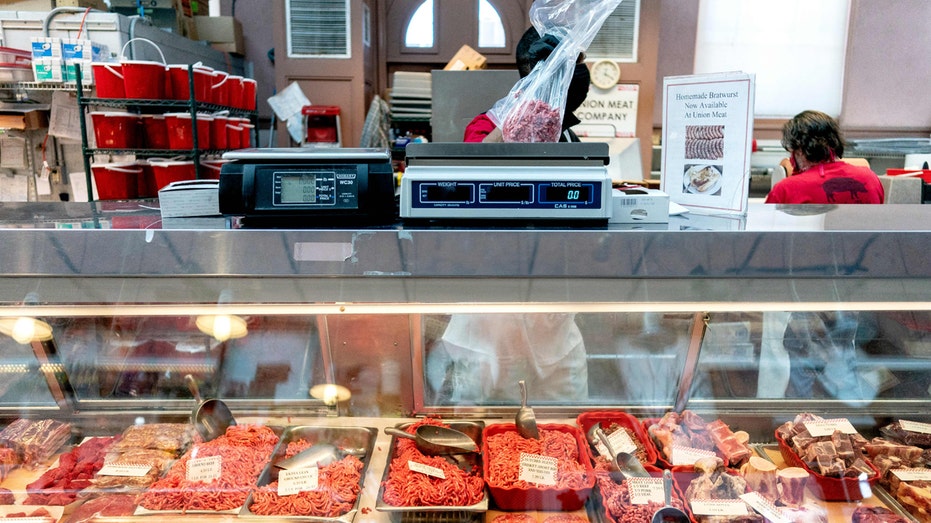Soaring inflation is likely costing Americans an extra $276 a month
Consumers are wrestling with once-in-a-generation sticker shock
Inflation dominates talk on Capitol Hill
Congressional correspondent Chad Pergram has the details on 'Cavuto: Coast to Coast.'
The average American is shelling out an extra $276 a month because of the highest inflation in four decades, according to a new Moody's Analytics analysis.
Consumers are wrestling with a once-in-a-generation stick shock as the cost of everything from cars, groceries, gasoline and furniture surges.
The consumer price index rose 7.5% in January from a year ago, according to a new Labor Department report released last week, marking the fastest increase since February 1982, when inflation hit 7.6%. The CPI – which measures a bevy of goods ranging from gasoline and health care to groceries and rents – jumped 0.6% in the one-month period from December.
MOST SMALL BUSINESSES SINCE 1974 ARE HIKING PRICES TO OFFSET INFLATION
"Having inflation at 7.5% on a year-ago basis, compared with the 2.1% average growth in 2018 and 2019, is costing the average household $276 per month," said Ryan Sweet, a senior economist at Moody’s.
Sweet came up with that figure by comparing prices for goods and services when inflation hit 7.5% versus how much households would have paid for those same items when inflation was 2.1%, the average in 2018 and 2019.

Shopper exits a Costco Friday, Jan. 28, 2022, in Santa Clarita, California. (AP Photo/Marcio Jose Sanchez / AP Newsroom)
Price increases were widespread last month: Although energy prices rose just 0.9% in January from the previous month, they're still up 27% from last year. Gasoline, on average, costs 40% than it did last year. Food prices have also climbed 7% higher over the year, while used car and truck prices – a major component of the inflation increase – are up 40.5%. Shelter costs jumped 0.3% for the month and 4% year-over-year.
"A lot of people are hurting because of high inflation. $276 a month—that’s a big burden," Sweet told The Wall Street Journal. "It really hammers home the point of ‘what is the cost of inflation?’"
The financial impact of red-hot inflation is not distributed equally and is differed across income and demographic groups.
A separate Wells Fargo analyst showed that lower-income Americans, particularly those who are renters, are probably experiencing much higher inflation than wealthier homeowners.

An employee prepares ground beef for a customer at Union Meat Company in Eastern Market in Washington, DC, on Feb. 8, 2022. (STEFANI REYNOLDS/AFP via Getty Images / Getty Images)
Middle-income households were hit the hardest by the price increase, with costs up 6.7% in December – 0.5 percentage points higher than for the lowest and highest income brackets. That's in large part because of transportation costs – middle-class households tend to spend more on gasoline than other income groups.
GET FOX BUSINESS ON THE GO BY CLICKING HERE
They are also more prone to buy used cars, whereas wealthier people are more likely to purchase a new car. Used car prices, a key component of the months-long inflation surge, increased again last month, jumping 1.5% from the previous month and 40.5% year over year. By comparison, the cost of new cars rose 0.6% in December from the previous month and 12.2% from the prior year.
Higher-earning households also spent more on dining out and restaurants, which rose less than overall inflation.
Finally, Hispanic or Latino households saw inflation of 7.1%, largely because of the disproportionate use of gasoline and used autos. That compares with an average inflation rate of 5.6% for Asian families, which tend to be wealthier than the average American household.





















